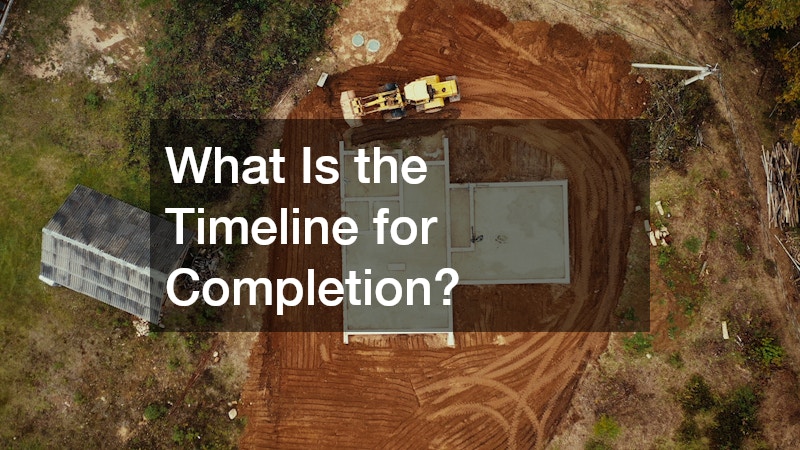In the realm of real estate, house and packages deals offer a convenient and often more affordable path to home ownership. This article delves into the key factors to consider when evaluating such deals, ensuring you make informed and beneficial decisions.
Is Location Truly the Most Important Factor?
Understanding Proximity to Amenities
The importance of being close to schools, shops, and transportation cannot be understated. Proximity to essential amenities not only enhances your daily life but also boosts your property’s appeal to future buyers.
When evaluating house and package deals, prioritize areas that offer a mix of amenities. Access to healthcare facilities, parks, and entertainment options can significantly contribute to your home’s market value.
The convenience of having resources at your doorstep cannot be measured solely in financial terms. It enhances the quality of life, reducing the time spent commuting and offering peace of mind.
Evaluating Neighborhood Growth Potential
Future growth potential of a neighborhood can significantly affect property value. Researching upcoming infrastructure projects or business developments can provide insight into a neighborhood’s trajectory.
Areas experiencing growth often see an increase in property values, making them attractive investments. Keeping an eye on city council plans and development proposals can reveal neighborhood growth opportunities.
However, rapid development can bring both positives and negatives, such as increased traffic. It’s crucial to balance potential benefits and drawbacks when choosing a location.
How Does Pricing Compare to Market Value?
Assessing Market Comparisons
Conducting a comparative market analysis can provide a clear picture of what is reasonable. It’s essential to ensure that the price of your house and package deal aligns with similar properties in the area.
By comparing current sales of nearby homes, you can determine whether a deal offers fair value. This step prevents overpaying and helps set realistic expectations for future appreciation.
Furthermore, market comparisons can highlight hidden gems within a community. Understanding the area’s pricing dynamics enables you to make a savvy investment.
Understanding Included Costs
Determining which fees and extras are included in the package can prevent unexpected expenses. Clear differentiation of costs, such as stamp duty, landscaping, and permits, should be a priority when evaluating deals.
Transparency regarding costs ensures you accurately budget your purchase. It’s often surprising how additional, unforeseen expenses can impact overall affordability.
Ensuring full comprehension of included and additional costs enables a true comparison to alternative housing options. Clarity in costs fosters confidence in your financial planning decisions.
What Should You Know About the Developer?
Researching Developer Reputation
The history and track record of the developer can predict the quality and reliability of their builds. Customer reviews and testimonials offer invaluable insights into their professionalism and customer satisfaction.
A reputable developer with positive feedback can provide peace of mind during construction. It’s wise to investigate any red flags or recurring issues highlighted by previous clients.
Engaging with current homeowners within the developer’s past projects could provide personal testimonials. These experiences help gauge the reliability and satisfaction rates associated with the developer.
Identifying Previous Project Success
Reviewing past projects can provide insights into the developer’s quality standards and delivery times. By examining prior builds, you can ascertain the finishes and durability offered by the developer.
Consistency in delivering quality and timely projects often correlates with higher levels of trust. Developers with strong portfolios signal their commitment to high standards.
However, it’s critical to reference multiple projects to establish a comprehensive picture. Even high-performing developers can sometimes encounter unforeseen challenges in isolated projects.
Are There Customization Options Available?
Exploring Design Flexibility
Understanding the extent to which you can customize your home can make a significant difference. Options for layout modifications, fixtures, and color schemes help tailor the house to your tastes.
Customization strengthens your emotional connection to the property, making it truly feel like home. Engaging in the design process often enhances long-term satisfaction with your purchase.
Different developers offer varying levels of flexibility, from basic modifications to extensive custom builds. Understanding your priorities will help in selecting the right balance of customization and cost.
Discussing Upgrade Opportunities
Knowing available upgrades can help tailor the home to better meet your needs. Often, though, allowance for upgrades such as additional garages or smart home features depends on developer agreements and standard packages.
Clear discussion about upgrade possibilities can prevent future buyer’s remorse. Investing upfront in desired features prevents the need for costly renovations down the line.
While upgrades may increase the initial price, they can significantly enhance both your lifestyle and the property’s future resale value. Paying attention to these opportunities can make a considerable difference in overall satisfaction.
What Is the Timeline for Completion?
Understanding Construction Phases
Clarifying the stages of construction can provide insight into what to expect during the project’s timeline. Detailed knowledge of timelines helps manage expectations and facilitates better planning.
Phased construction often reflects the developer’s efficiency and understanding of local construction regulations. Transparency in the build phases signals professionalism and experience in managing complex projects.
Phased timelines also allow potential homeowners to visit the site at various stages. This helps ensure that construction is proceeding as planned and overall quality remains high.
Setting Realistic Move-In Dates
Accurate move-in projections can assist with planning and reducing stress. Knowing when you’ll be handed the keys allows for better coordination of relocation logistics.
Unforeseen delays in construction are not uncommon due to weather or supply chain issues. However, developers who provide realistic timelines demonstrate integrity and reliable project management.
Homebuyers should seek written assurances regarding move-in dates to safeguard against unexpected interruptions. Clear communication ensures smooth transitions, reducing stress around the moving process.
.




